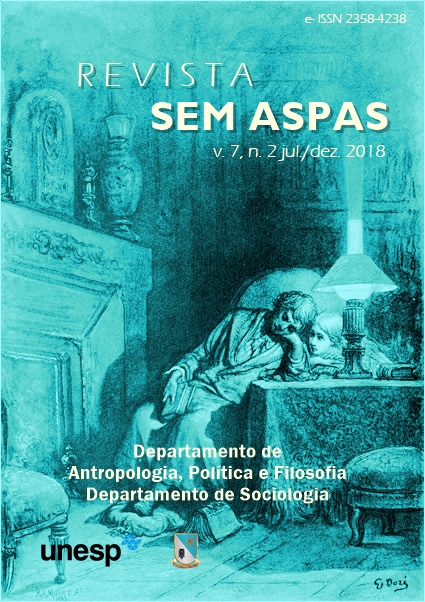Building a nation: between conservation and change in brazil’s XX century
DOI:
https://doi.org/10.29373/sas.v7i2.11897Keywords:
Racialist theories, Nation-state, Literature, Modernization, Miscegenation.Abstract
This article aims to study the contradiction between the racialist theories of the late nineteenth century and the thirties of the 1930s to build a modern nation state and autonomous capitalist development. In other words, the present work will analyze the difficulties of thinking about the modern state in a country that had been impregnated by racialist theories that not only condemned the possibility of development but also related specifically to the Brazilian population. In order to elucidate this reflection, we turn to literature, especially Aluísio Azevedo's book O Cortiço (1890), where the construction of two black characters demonstrates how racialist theories spread in various fields of knowledge: Bertoleza, a black enslaved woman, and Rita Baiana, stereotype of the sensual mulatto. We also appeal to authors like Raimundo Nina Rodrigues, Gilberto Freyre, Florestan Fernandes and Carolina de Jesus.Downloads
References
AZEVEDO, Aluísio. O Cortiço. São Paulo: Editora Ática, 1974.
BOAS, Franz. Antropologia cultural. 6ª ed. Rio de Janeiro: Jorge Zahar Ed., 2010.
FERNADES, Florestan. A integração do negro na sociedade de classes: o legado da ‘raça branca’. São Paulo: Dominus/Editora da Universidade de São Paulo, 1965.
FREYRE, Gilberto. Casa-grande e senzala: formação brasileira sob o regime da economia patriarcal. São Paulo: Global, 2006.
JESUS, Carolina Maria de. Quarto de despejo: diário de uma favelada. 6ª Ed. São Paulo: Editora Paulo de Azevedo, 1960.
KI-ZERBO, Joseph. Teorias relativas às “raças” e história da África. In: História Geral da África: metodologia e pré-história da África. Brasília: UNESCO, p. 283-293, 2010.
NOGUEIRA, Marco Aurélio. Os Anos Trinta. Revista de Ciências Sociais, Unesp. Perspectivas, vol. 11, p. 93-99, 1988.
OLIVEIRA, Ricardo de. Euclides da Cunha, Os Sertões e a invenção de um Brasil profundo. Revista Brasileira de História, v.22, n. 44, p. 511-537. São Paulo, 2002.
PUFF, Jefferson. Por que as Religiões de Matriz Africana são o Principal Alvo de Intolerância no Brasil? BBC. Rio de Janeiro, 21 jan. 2016. Disponível em: http://www.bbc.com/portuguese/noticias/2016/01/160120_intolerancia_religioes_africanas_jp_rm. Acesso em: 25 nov. 2017.
RAMOS, Arthur. O negro brasileiro: etnografia religiosa. 2ª ed. São Paulo: Companhia Editora Nacional, 1940.
RODRIGUES, Raymundo Nina. Os africanos no Brasil. São Paulo: Madras, 2008.










